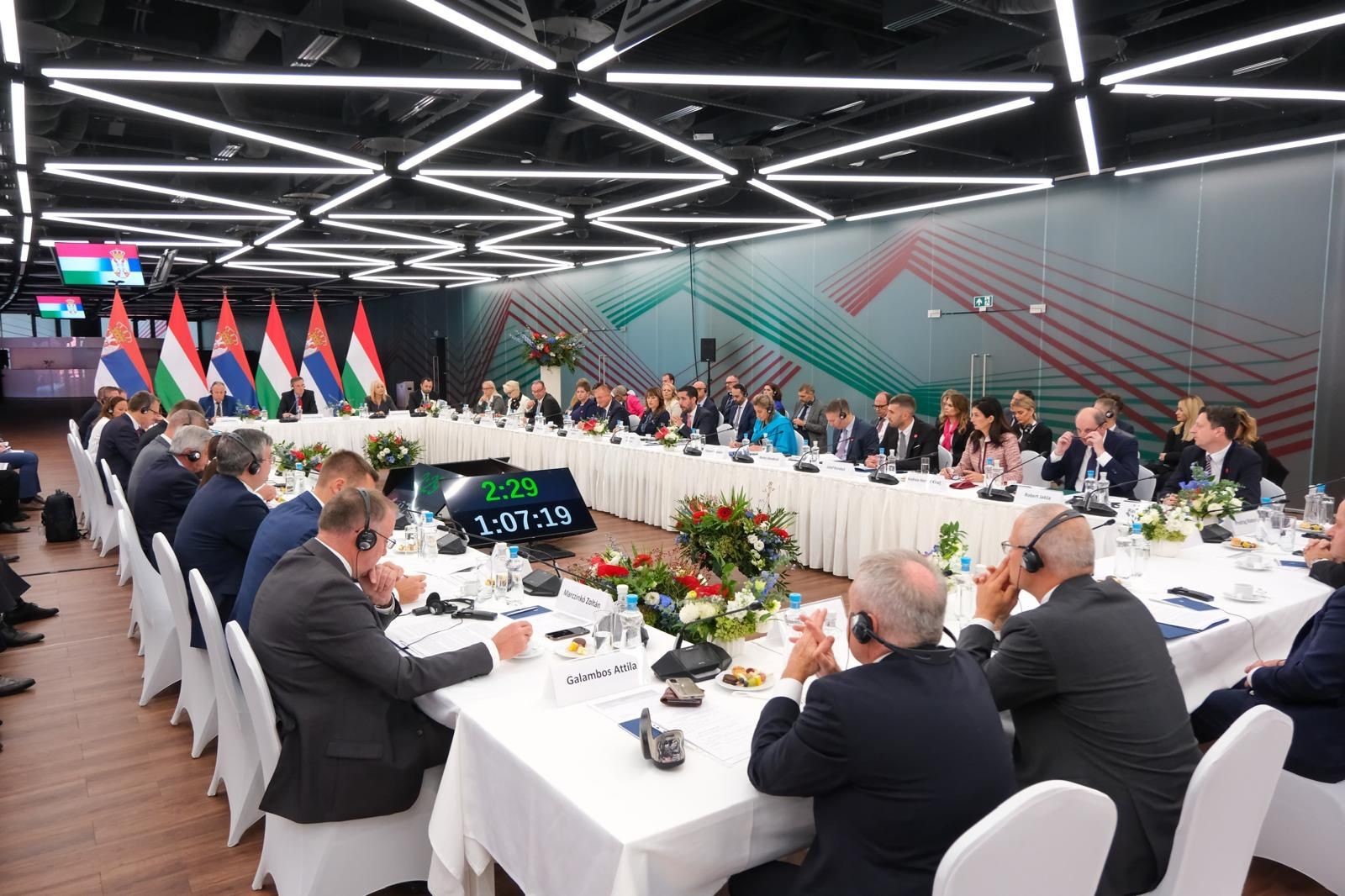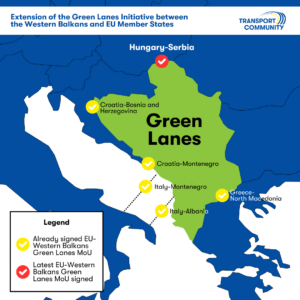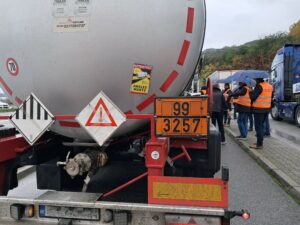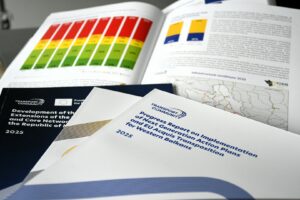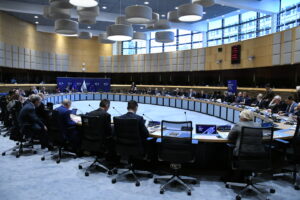BELGRADE/BUDAPEST – The Governments of Hungary and Serbia have progressed meaningfully toward enhancing cross-border trade and mobility by signing a Memorandum of Understanding (MoU) to extend the successful Green Lanes Initiative between their key border crossing points (BCPs). This also adds to regional cooperation, reinforcing the economic integration of the Western Balkans with the European Union.
The MoU was signed by Mr Norbert Izer, State Secretary for Tax Affairs at Ministry of Finance of Hungary, and H.E. Mr Tomislav Momirović, Minister of Internal and Foreign Trade of Serbia.
The Green Lanes Initiative launched jointly by the Transport Community and CEFTA, and supported by the European Commission, during the COVID-19 outbreak, has already demonstrated its effectiveness within the Western Balkans. Since its inception, it has saved nearly 20 years of waiting time at border crossings, boosting regional trade and economic growth by facilitating the movement of goods within the CEFTA region. The initiative has proven effective in reducing delays, cutting costs, and enhancing the competitiveness of businesses across the region.
This success has underscored the importance of strong regional cooperation, concentrated efforts, and political leadership, which have driven the Green Lanes Initiative forward. It also highlights the tangible benefits of harmonising customs procedures and investing in modern border infrastructure to promote free trade and mobility.
The MoU between Serbia and Hungary builds on this success by expanding the Green Lanes Initiative to one of the most important transit routes in the wider region. Serbia and Hungary now join other EU-Western Balkans partners – including Greece with North Macedonia, Croatia with Montenegro and Bosnia and Herzegovina, and Italy with Albania and Montenegro – where the exchange of customs data has already been improved through signing of separate MoUs.
This expansion will enhance the flow of goods and reduce long queues at the Serbia-Hungary border, bringing economic benefits to businesses on both sides. It will also improve the safety, environmental impact, and overall well-being of drivers, aligning with the broader principles of free movement of goods and people between the EU and the Western Balkans.
The Transport Community encourage all the regional partners and their neighbouring EU Member States to follow this approach by implementing electronic exchanges of customs data. Full implementation of pre-arrival data exchanges and modernised border procedures is key to accelerating the clearance of goods, reducing delays, and fostering closer economic ties between the EU and the Western Balkans.
In support of these efforts, the Permanent Secretariat of the Transport Community and CEFTA, supported by the European Commission, are focused on implementing the Comprehensive Roadmap for Enhancing Green Lanes and Modernising Border/Common Crossing Points, which was endorsed at the Leaders’ Summit in Kotor in May 2024.
On Green Lanes
The Green Lanes initiative was launched during the COVID-19 pandemic to ensure the uninterrupted flow of essential goods and medical supplies, proving to be a highly successful regional cooperation effort. Led jointly by the Transport Community, CEFTA, and the Regional Cooperation Council, the initiative facilitated trade within the Western Balkans by prioritising the passage of essential goods at border crossings. One year later, it had expanded to cover all road and several rail border crossing points in the region, reducing waiting times and transport costs for businesses. The initiative uses CEFTA’s SEED system for the electronic exchange of pre-arrival data, allowing customs and other agencies to expedite inspections and clearance. The ongoing effort aims to extend the Green Lanes to the Western Balkans border crossings with neighboring EU Member States.
Cover photo: Ministry of Internal and Foreign Trade of Serbia

